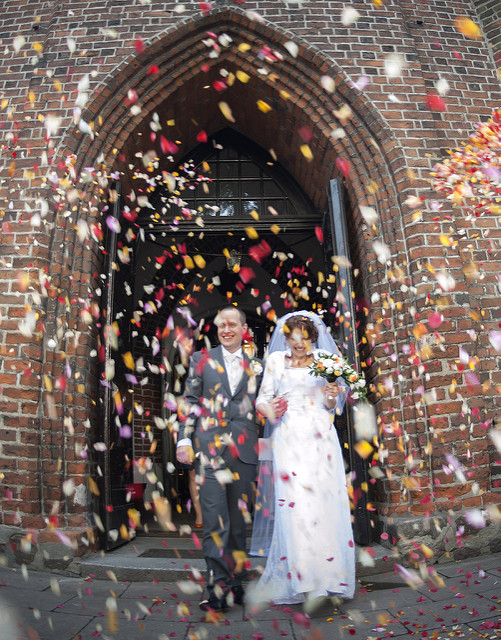Order of Celebrating Matrimony:
Preparing Your Wedding Liturgy
Introduction

Preparing your Wedding Liturgy
Congratulations on deciding to get married!
In these pages you will find a guide to the wedding liturgy and to the choices you can make for your celebration. This guide follows a number of pathways to help you make choices. It is intended that you read through the various sections in the order that suits you.
- Starting Points - background information about some of key decisions
- there is a ‘walkthrough’ the wedding liturgy describing what happens and highlighting some of the choices you can make.
- there is further detail about many aspects of the celebration and the resources available to help you.
The wedding liturgy contains a number of possible choices and this may seem overwhelming at first. There are also within the liturgy elements which are fixed — if you want a wedding in a Catholic church these are things you have to have. It is possible to choose a lot of the detail however it is suggested that you consider first the following elements:
- the form of the wedding liturgy — with or without Mass
- the Marriage texts
- the scripture readings
- the music
and then some of the practicalities which arise from these.
In preparing your Wedding Liturgy there will be a number of people who will help you. This includes the Priest or Deacon in the parish, as well as the organist or music director.
How long will it take to prepare?
Different couples will take different amounts of time. Some will want consider every possible aspect; others will be happy to have just a few elements particular to them. For some couples the wedding liturgy will be the starting point for their preparation. In some churches they will wish to have everything finalised well before the wedding date. As a suggestion you should have everything prepared for the liturgy a month before the wedding and you should allow a month for the preparation of the liturgy. This may seem a long time but it will allow time for reflection on the readings and weighing up the various other choices.
General Notes
These notes aim to be 'jargon-lite’. Any area, including the Church’s worship, will have its own special language which can be off-putting or mystifying to someone who is less familiar with the details. This technical language is useful as it allows a clarity of dialogue. So this guide does use technical jargon but tries to explain it when it is introduced.
Every wedding is unique. Therefore this guide cannot identify every circumstance or possible situation. For ease not every variation is always spelled out, for example:
- Priest or Deacon: In England and Wales either a Priest or Deacon will celebrate the wedding — so in many cases in the guide where Priest is used Deacon might be understood. But with the following further clarification: only a Priest may celebrate Mass (a Deacon can be present in addition), whereas Weddings without Mass may be conducted by either a Priest or a Deacon.
- Organist or Director of Music. Though we associate Weddings with organ music that does not necessarily have to be the case. In some parishes the Organist and Director of Music will be the same person, in others two different people and one or both may be involved in helping you.
